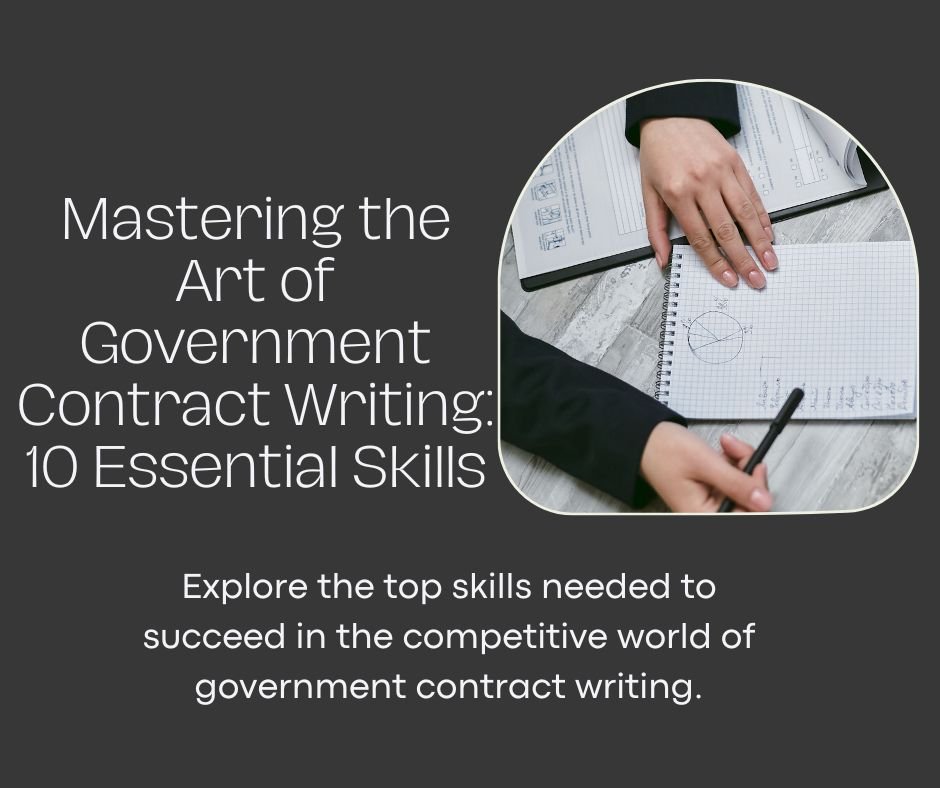RFP Proposal Writer: Top 10 Responsibilities & Essential Skills
Are you curious about the role of an RFP proposal writer? This blog dives into the top 10 responsibilities and essential skills required for crafting successful proposals. Whether you're looking to hire or become one, this guide provides valuable insights.
Table of Contents
Summary
This blog outlines the top 10 responsibilities and essential skills of an RFP proposal writer. It covers the importance of their role, the key tasks they handle, and the skills needed to excel. Additionally, it offers SEO optimization tips and includes FAQs to address common queries about this profession.

Introduction
In today’s competitive business world, the role of an RFP proposal writer is absolutely crucial when it comes to securing new contracts and driving organizational growth. An RFP (Request for Proposal) proposal writer is responsible for crafting compelling and persuasive proposals in response to RFPs issued by potential clients. Their expertise can truly make all the difference between winning and losing a bid. So, in this blog, we’re going to dive into the top 10 responsibilities and essential skills of an RFP proposal writer, giving you all the information you need about this pivotal role.
Top 10 Responsibilities of an RFP Proposal Writer
1. Understanding Client Requirements
A successful RFP proposal writer knows the importance of meticulously reviewing the RFP document to fully grasp the client’s needs, objectives, and evaluation criteria. This foundational step ensures that the proposal perfectly aligns with what the client is looking for.
2. Research and Information Gathering
Comprehensive research is absolutely essential. Writers gather information about the client’s industry, competitors, and specific challenges. This data helps tailor the proposal to effectively address the client’s unique situation.
3. Proposal Strategy Development
Developing a winning strategy involves collaborating with key stakeholders to define the proposal’s themes, differentiators, and value propositions. The writer ensures that the strategy aligns with the client’s goals and the company’s strengths.
4. Content Creation and Writing
At the heart of their role, RFP proposal writers create clear, persuasive, and compelling content. They highlight the company’s capabilities, experience, and the benefits of their solution, ensuring that the proposal is both informative and engaging.
5. Editing and Proofreading
Meticulous editing and proofreading are crucial. Writers must ensure that the proposal is error-free, follows the client’s formatting guidelines, and maintains a consistent and professional tone throughout.
6. Compliance and Formatting
Adhering to the RFP’s specific requirements, including compliance and formatting, is vital. Writers ensure that the proposal meets all technical specifications and submission guidelines to avoid disqualification.
7. Collaboration with Subject Matter Experts (SMEs)
RFP proposal writers work closely with SMEs to gather technical and specialized information. This collaboration ensures that the proposal includes accurate and detailed responses to technical questions.
8. Graphic Design and Visuals
- Effective use of graphics, charts, and visuals can greatly enhance the impact of a proposal. Writers collaborate with graphic designers to create visually appealing documents that support and enhance the written content.
9. Submission and Follow-Up
- Once the proposal is finalized, writers handle the submission process, ensuring that it is delivered on time and in the correct format. They also track the proposal’s status and follow up with the client as needed.
10. Continuous Improvement
- After submission, writers gather feedback and analyze the proposal’s performance. This analysis helps refine future proposals, continuously improving the quality and effectiveness of their work.
Essential Skills for an RFP Proposal Writer
– Exceptional Writing Skills: Clear, concise, and persuasive writing is absolutely essential. Writers must be able to convey complex ideas simply and effectively.
– Attention to Detail: Precision in following guidelines, formatting, and editing is crucial to avoid errors that could jeopardize the proposal.
– Research Skills: The ability to conduct thorough research and synthesize information is key to creating relevant and tailored proposals.
– Project Management: Writers often juggle multiple proposals simultaneously. Strong project management skills ensure that deadlines are met without compromising quality.
– Collaboration and Communication: Effective communication with team members, SMEs, and stakeholders ensures that all necessary information is gathered and incorporated into the proposal
For more in-depth information on government procurement and contract writing, you can visit Acquisition.gov—a comprehensive resource for acquisition regulations and guidelines.
Visit Our Website For those seeking assistance with responses, visit Narrative Nest Hub. Our team offers economical and customized response writing services that align with tenedrer specific needs and help you stand out in competitive selections.
contact us www.narrativenesthub.com
FAQs
Q: What is an RFP proposal writer? A: An RFP proposal writer crafts responses to Request for Proposals issued by potential clients, aiming to secure new contracts for their organization.
Q: What skills are essential for an RFP proposal writer? A: Key skills include exceptional writing, attention to detail, research, project management, collaboration, adaptability, analytical thinking, creativity, technical proficiency, and resilience.
Q: How does an RFP proposal writer improve their proposals? A: Continuous learning, feedback analysis, and collaboration with SMEs and stakeholders help refine and improve the quality and effectiveness of proposals.
Q: Where can I learn more about proposal writing? A: The APMP’s Proposal Guide and various online courses offer comprehensive resources for aspiring and current RFP proposal writers.
